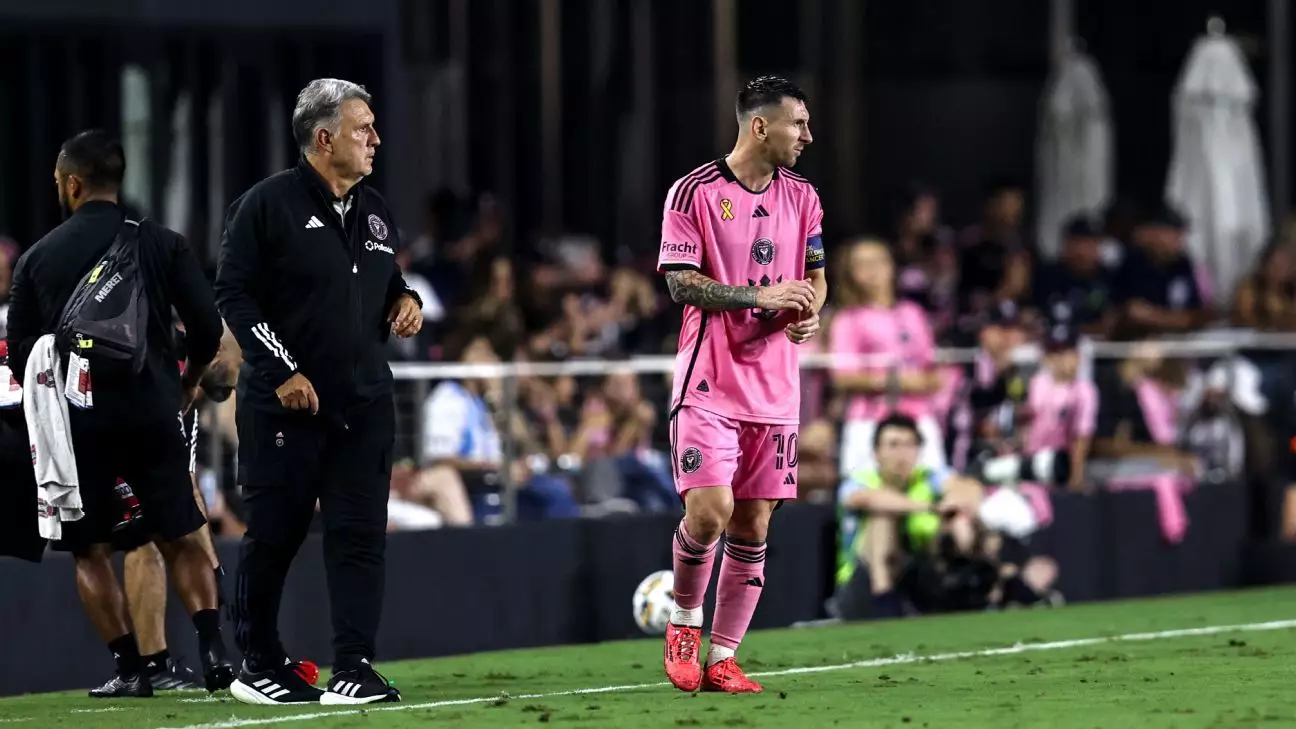The annual Ballon d’Or award elicits debates that often transcend the surface of sport, igniting discussions about talent, achievement, and legacy. Recently, Inter Miami’s head coach, Gerardo “Tata” Martino, reignited this conversation by affirming his belief that Vinícius Júnior deserved the coveted title, while maintaining that Lionel Messi remains the best player in the world, regardless of the award. This dichotomy of recognition raises questions about how we perceive greatness in football.
Vinícius Júnior had a remarkable 2022-2023 season with Real Madrid, showcasing skills that firmly positioned him as a leading contender for the Ballon d’Or. His 24 goals and 11 assists across competitions not only highlight his ability to affect games decisively but also signify his evolution from potential to proven performer. Particularly memorable was his crucial goal in the UEFA Champions League final against Borussia Dortmund, which underscored his penchant for rising to occasion in high-stakes matches.
For many, his recognition during the award ceremony in Paris is not merely a personal accolade but a reflection on the changing dynamics of football—where younger players are beginning to carve out their legacies alongside established legends.
The Persistent Shadow of Messi
Despite the accolades around Vinícius, Messi’s shadow remains omnipresent. Martino succinctly highlighted this when he remarked that while Vinícius displayed outstanding merits last season, Messi’s current form still places him at the pinnacle of the sport. At 37, Messi continues to challenge the conventional wisdom surrounding age and athletic prowess; his record of eight Ballon d’Or trophies stands as a testament to his unparalleled consistency and skill over the years. He was notably absent from nominations for the first time since 2003, which surprised many, including former teammate Jordi Alba, emphasizing the persistent debate on whether awards accurately reflect a player’s impact and talent.
Even though Messi’s absence from this year’s Ballon d’Or nominations may be seen as indicative of a transitional phase in his career, his influence persists. Notably, he is in the running for MLS’s MVP award, having netted 20 goals and provided 16 assists in just 19 matches this season. Such statistics demonstrate that even in a new league and at an advanced stage of his career, Messi maintains an elite level of performance that continues to influence matches.
The discourse surrounding the Ballon d’Or and the declarations from figures like Tata Martino highlight a deeper narrative: the definition of greatness in football is continually evolving. While Vinícius Júnior is undoubtedly a rising star, the legacy of Lionel Messi looms large, reminding fans and players alike that excellence is often defined by a combination of brilliance, consistency, and lasting impact. As the football community grapples with these insights, one thing remains certain: conversations about who deserves accolades will continue, shaping the rich tapestry of the beautiful game.

